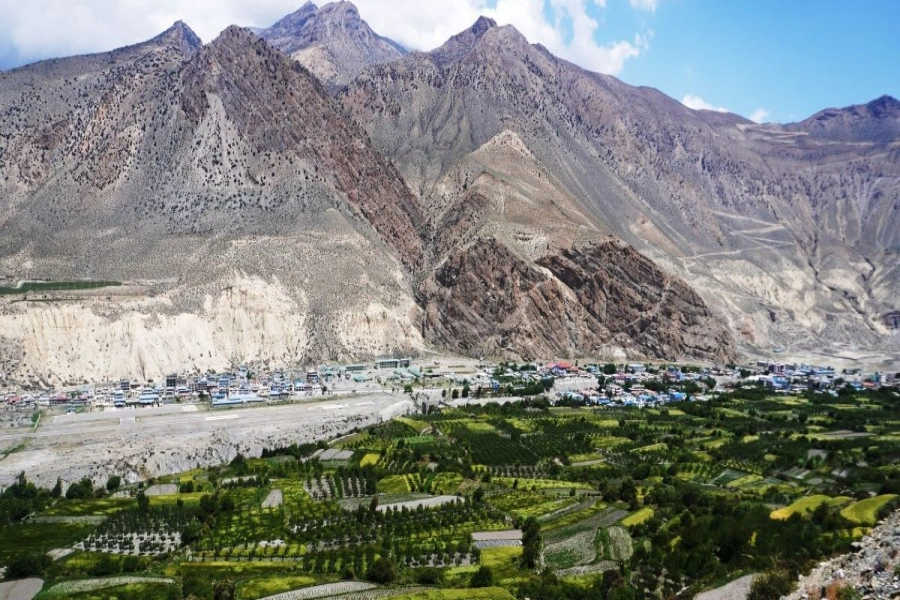Economy remained as usual under powerful government
KATHMANDU, March 7: ‘Economic revolution’ and ‘economic transformation’ were buzzwords when a rare two-third majority was achieved in the parliament by the country’s left alliance. The people expected to see a stronger government that could deliver them from the problems in the economy and unlock constrains to accelerate the economy.
The political transition has already come to an end now, and it’s time to think about economic activities. Political leaders, including Prime Minister Khadga Prasad Oli, often talk about making economy the top priority.
Many were hopeful that a stronger government could deliver better than those during the political transition since mid-1990s. Guards at Singha Durbar changed almost every year in between.
After a year of the current government and six months of the implementation of the budget unveiled by Minister for Finance Yuba Raj Khatiwada, there are no indicators to show the country reaching anywhere near what the prime minister and other leaders have been claiming.
This is not what commoners and business community hoped for, economists and opposition party leaders argue. Khatiwada also acknowledged low performance, stating that ‘there still exists an economic transition.’ Khatiwada, who was said to have knowledge of inside-out of the economy, was expected to send the economy upwards.
Our Collective Failure

Speaking at the mid-term review of the first six months of budget implementation, Khatiwada listed few limitations including project management and civil contractor management, as well as inability to pay the contractors even after completion of the work.
“This is where the problem lies, as we could not pay in time and ministries and projects did not work as we wanted, while civil contractors are not honest,” said Khatiwada.
The figures of spending development budget remained at mere 17 percent and overall spending was only 28 percent – lower than the Khatiwada’s own expectation.
This inaction is in no way different from what the previous unstable governments did. Each finance minister in the past have made similar statements, and claimed that they did not have direct authority or control over project managements.
Financial progress or spending of the budget allocated for 19 national pride projects were lower than a quarter of Rs 88 billion.
Performance of the ministries and their implementing agencies show that the pace of implementing road, urban development, irrigation, and hydropower projects has not changed under the new powerful government.
Increasing productivity in all sectors including industry and agriculture was the government’s other notable focus for the budget. But the import bills show otherwise, as import bills of agro-products have increased at a faster rate in the past year.
Against this background, Khatiwada claimed that production has increased but the statistics of import of agro products indicates something else.
Number of tourists has increased and an eight-year old target of bringing in 10 million tourists in a year was achieved, but foreign direct investors did not pour money as expected under the stronger government. FDI slipped by 70 percent of the target in the review period of six months.
Situation in the lack of governance and regulation of the market also could not improve despite few steps like punishing non-performing civil contractors. The government could not even make sugar mills pay farmers’ bills.
During this period, dairy farmers spilled their milk in protest of milk-holiday, and vegetable farmers destroyed their produce in lack of market assurance.
Delay in resuming permission for foreign employment in Malaysia lowered the number of migrant workers going abroad, while government’s stronger monitoring has improved remittance flow by minimizing illegal Hundi transaction. As a result, remittance has grown to a satisfactory level.
Despite the narration of a pathetic reality by the finance minister, Prime Minister Khadga Prasad Oli cherry-picked the projects of good performance and boasted of the country’s development in the television show Janatasanga Pradhanmantri.
PM seemed reluctant to accept the economic reality and the fact that he is much dependent on the finance minister for the important task of economic development. The government will fail public expectations if the prime minister does not immediately bring changes in the performance of ministries and line agencies that implement the budget.
Khatiwada said he has done the needful for legal reforms by registering bills in the parliament including Fiscal Responsibility Act Economic Procedure and Fiscal Responsibility Bill-2075 BS to administer the budget and project implementation by making agencies responsible.





































